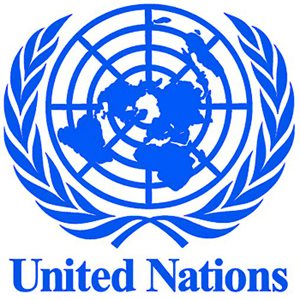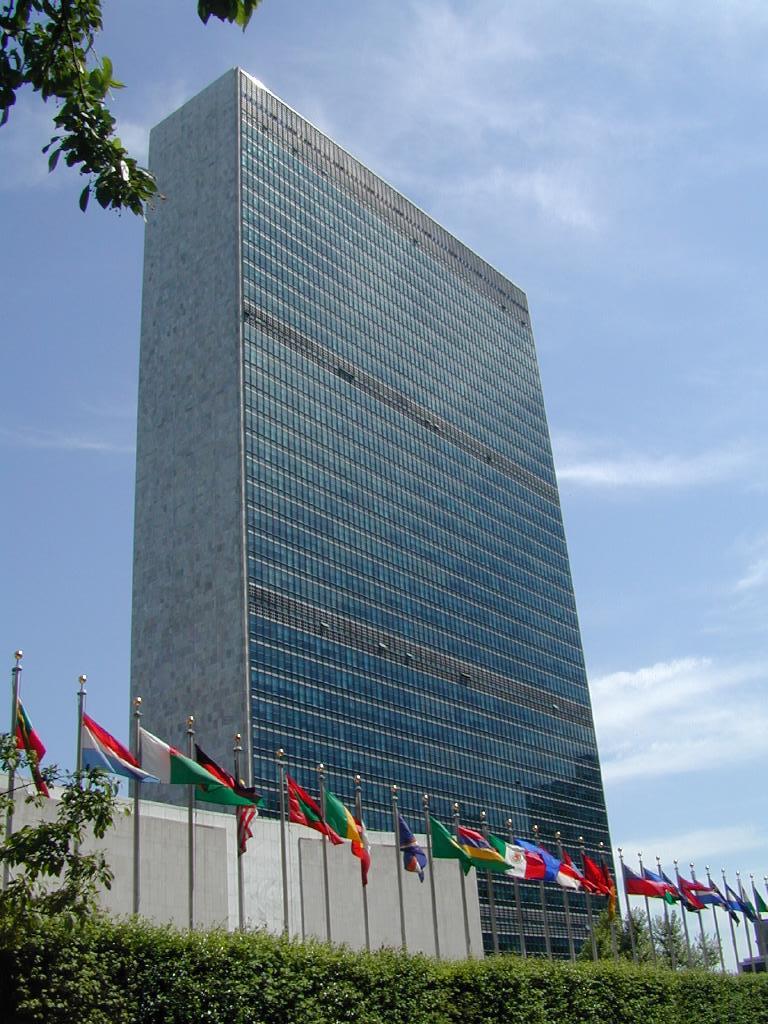United Nation
United Nations: The Beacon of Global Cooperation
Introduction
The United Nations (UN) is a preeminent international organization dedicated to promoting peace, security, human rights, and sustainable development worldwide. This article explores the history, structure, core functions, and challenges faced by the United Nations.
1. Historical Background
The United Nations was founded in the aftermath of World War II in 1945, with the primary aim of preventing another global conflict. The organization's formation was influenced by the failure of the League of Nations and the need for a more comprehensive approach to international cooperation.
2. Structure of the United Nations
The United Nations has a multi-faceted structure that includes:
a. General Assembly: The primary deliberative body, where all member states have equal representation, and discussions encompass global issues.
b. Security Council: Responsible for maintaining international peace and security, with five permanent members possessing veto powers.
c. Secretariat: Comprising UN staff, led by the Secretary-General, who oversees the organization's daily operations and implements decisions.

d. Specialized Agencies: Entities like the World Health Organization (WHO) and UNICEF, each addressing specific global issues.
e. Regional Commissions: Subsidiary organizations that focus on regional development and cooperation.
3. Core Functions of the UN
The United Nations performs a wide array of functions to address global challenges, including:
a. Peacekeeping: Deploying peacekeeping missions to conflict zones to maintain ceasefires and promote reconciliation.
b. Diplomacy: Facilitating diplomatic dialogue among nations to prevent and resolve conflicts.
c. Human Rights: Advocating for and monitoring the protection of human rights, including the promotion of gender equality.
d. Sustainable Development: Implementing initiatives to combat poverty, hunger, and climate change through programs such as the Sustainable Development Goals (SDGs).
e. Humanitarian Assistance: Providing aid to countries affected by natural disasters, conflicts, and health crises.
4. Achievements and Contributions
The United Nations has made significant contributions to global peace, security, and development:
a. Peacekeeping: UN peacekeeping missions have been instrumental in mitigating conflicts, negotiating peace agreements, and protecting civilians.
b. Human Rights: The UN's efforts have led to the Universal Declaration of Human Rights and numerous human rights treaties and conventions.
c. Development: Programs like the Millennium Development Goals (MDGs) and the Sustainable Development Goals (SDGs) have helped reduce poverty, improve healthcare, and promote environmental sustainability.
d. Humanitarian Aid: The UN has delivered life-saving aid to millions of people affected by natural disasters, armed conflicts, and pandemics.
e. Crisis Resolution: The UN has played a pivotal role in diplomatic efforts, conflict resolution, and peacebuilding, particularly in post-conflict societies.
5. Challenges Faced by the UN
The United Nations faces various challenges in its mission, including:
a. Geopolitical Tensions: Conflicting national interests and power politics can impede the UN's ability to address global crises effectively.
b. Funding Shortages: Financial constraints often hinder the organization's operations and its ability to address humanitarian and development needs.
c. Human Rights Abuses: The UN must navigate complex political landscapes to address human rights violations, often facing resistance from member states.
d. Inequality: Addressing global inequalities in wealth, access to resources, and development remains a significant challenge.
e. Global Crises: Emerging global crises, such as climate change and cyber warfare, require innovative approaches and rapid responses.
6. The Future of the United Nations
The United Nations continues to play a vital role in addressing global challenges. The future holds several opportunities and areas for focus, including:
a. Climate Action: The UN can further promote global cooperation to mitigate climate change and its devastating consequences.
b. Conflict Resolution: Strengthening peacekeeping efforts and diplomatic resolutions to prevent conflicts and promote stability.
c. Human Rights Protection: Addressing systemic human rights abuses, including the protection of vulnerable populations.
d. Global Health: Tackling global health crises, such as pandemics, through improved international coordination and preparedness.
e. Sustainable Development: Advancing progress toward the Sustainable Development Goals and promoting equitable global development.
Conclusion
The United Nations remains a cornerstone of global cooperation, aiming to address pressing challenges that transcend borders and ideologies. While it faces persistent challenges, the UN's role in promoting peace, security, human rights, and sustainable development is as crucial as ever. As the world grapples with evolving global crises, the United Nations serves as a beacon of hope for a more peaceful, just, and sustainable future.
The United Nations is an international organization which “aims to facilitate cooperation in international law, international security, economic development, social progress, human rights, and achieving world peace.” The United Nations was founded in 1945 after WWII and it replaced the League of Nations.
The purpose of the United Nations during its creation was to end wars between nations and give countries a forum for dialogue between each other. The United Nations currently boasts 192 member states, which includes nearly every recognized independent state in the world.
The United Nations has its headquarters in New York City and the building is considered international territory. The United Nations is divided into five administrative bodies; The General Assembly which is the main deliberative body, the Security Council which decides certain resolutions for peace and security, The Economic and Social Council which aids in promoting international economic and social cooperation and development, the Secretariat which provides studies, information and facilities needed by the United Nations, and last but certainly not least is the International Court of Justice which serves as the primary judicial organ.
The United Nations was the successor to the League of Nations which was for the most part considered to be an incompetent organization and was not an effective governing body. In April of 1954, the United Nations Conference of International Organization began in San Francisco. 50 governments and many non governmental organizations such as Rotary International and Lions Clubs International all helped in drafting the Charter of the United Nations.
In October of 1945 the United Nations became official after the Charter of the United Nations was ratified by the five permanent members of the United Nations Security Council and by a majority of the 46 other member states. These countries in the United Nations Security Council were France, the Republic of China, the Soviet Union, the United Kingdom, and the United States. The first meeting of the General Assembly took place in Westminster Central Hall in London, the location has since moved to the United Nations building in New York City.
 The United Nations has had considerable success in the social arena, fostering human rights, economic development, decolonization, health, education, assisting refugees, and ensuring fair trade. The United Nations is quite remarkable, as they were able to garner such support and confidence from the very beginning.
The United Nations has had considerable success in the social arena, fostering human rights, economic development, decolonization, health, education, assisting refugees, and ensuring fair trade. The United Nations is quite remarkable, as they were able to garner such support and confidence from the very beginning.
While there have still been wars, threats on international security, genocides, and a slew of other problems one cannot dismiss the effect that the United Nations has had. There may always be problems, however they would be magnified and multiply if it weren’t for international bodies such as the United Nations and their ability to facilitate discussion and dialogue among member states.
The United Nations is an organization that includes every government on earth. Each country in the United Nations is referred to as a member state and form the United Nations General Assembly. The United Nations General Assembly is one of the five man facets of the United Nations.
The United Nations General Assembly oversees the budget of the UN, appoints the non-permanent members of the Security Council, receive reports from other parts of the UN, and make recommendations in the form of General Assembly Resolutions. The United Nations General Assembly meets under its president or secretary general in regular yearly sessions from September to December.
Though those are the usual meeting times, they reconvene for special and emergency sessions. The United Nations General Assembly will vote on important world decisions such as recommendations on peace and security, election of members to organs, admission, suspension, and expulsion matters.
The General Assembly will vote n many resolutions brought forth by sponsoring states. These resolutions are usually symbolic statements surrounding a world issue; they can range anywhere to the proliferation of arms to ending genocide. A major disadvantage to the United Nations General Assembly is the lack of a legal and binding contract.
While the United Nations General Assembly is representative of the international community, they have no real authority in enforcing laws and resolutions. However, the United Nations General Assembly does have a great deal of power and the notion that they are an organization that cannot enforce anything is false and should be disregarded.
Furthermore, the United Nations General Assembly have the authority to take final decisions in areas such as the budget, but resolutions passed by the United Nations General Assembly may also be constitutive or proof of international customary law and therefore binding on the member states.
Within the United Nations General Assembly, there are six main sub committees; The First Committee: Disarmament and International Security, The Second Committee: Economic and Financial, The Third Committee: Social, Cultural, and Humanitarian, The Fourth Committee: Special Political and Decolonization, The Fifth Committee: Administrative and Budgetary, and The Sixth Committee: Legal.
While there are regularly scheduled meetings for the United Nations General Assembly, they may convene for special sessions. For instance, they may meet at the request of the United Nations Security Council; another special session was for the Millennium Development Goals. There are also emergency special sessions that convene during times of urgency and will meet many times within the next one or two days regarding matters of international peace and security.
The United Nations General Assembly is truly a stunning body of people and we owe them a great deal for being able to change the world. While there many always be problems in the world, the United Nations General Assembly has been able to thwart certain issues from coming into play and it has also offered a forum for world leaders to discuss matters at hand and attempt to resolve any problems they may have.